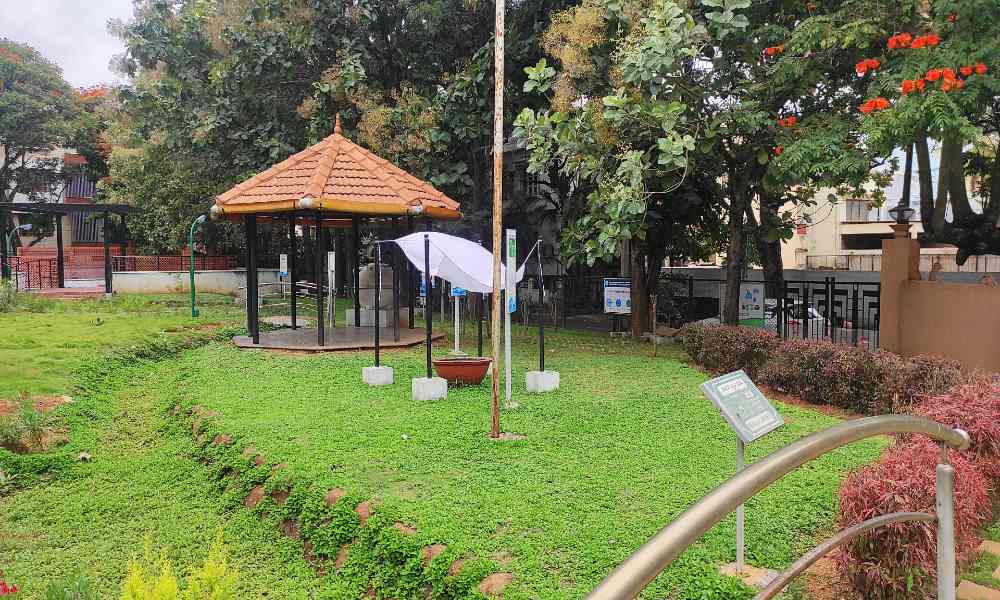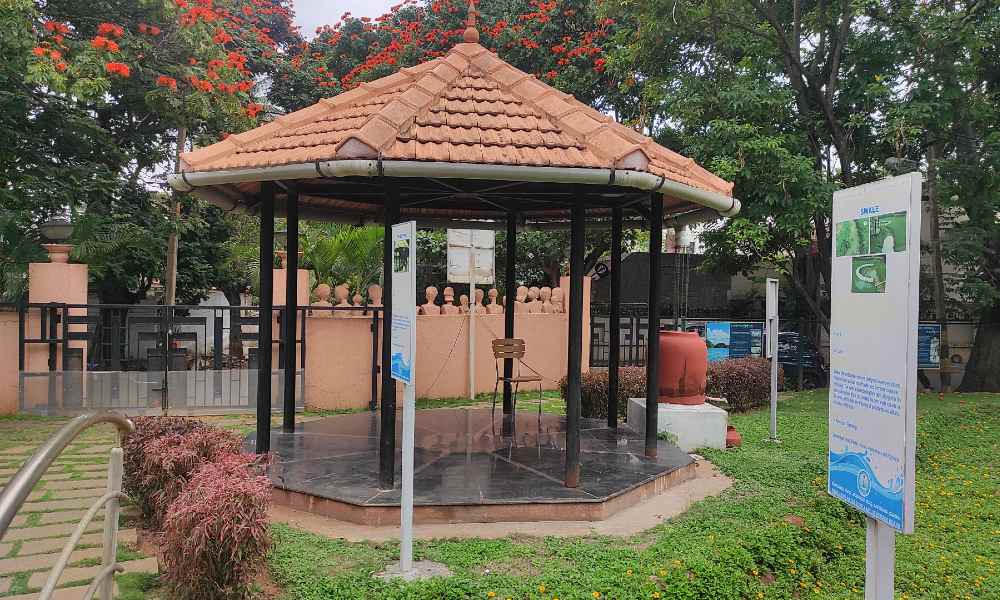Around two lakh rainwater harvesting connections have been made so far in the city, says BWSSB.
Bengaluru: Around two lakh houses in the city have installed rainwater harvesting connections, said Asra Banu, a Bangalore Water Supply and Sewerage Board (BWSSB) official. According to the 2021 Press Release from BWSSB, owners of 56,000 buildings have been fined for not installing rainwater harvesting.
BWSSB officials have collected, Rs. 21.5 crores in fines from the owners of buildings that do not have rainwater harvesting plants, in accordance with the Bangalore Water Supply and Sewerage Board Amendment Bill.
Most residents in Halasuru don’t have rainwater harvesting plants in their building. Residents say that they use Cauvery water for their basic requirements and therefore, have not installed rainwater harvesting plants in their buildings.
However, rainwater harvesting plants have been installed in other areas. Vivek, a resident of Rajarajeshwari Nagar said that he installed rainwater harvesting plant before Covid-19 lockdown and was also benefited by using rainwater. He started to collect rainwater during lockdown and used the rainwater for recharging the ground water.
Radhika, a resident from Koramangala Block four, said, “We are using rooftop rainwater harvesting in our building. Whenever there is heavy rainfall, we collect the rainwater and store it in the sump and use it except for cooking and drinking.”

Sunil Kumar, a spokesperson from BWSSB’s Rainwater Harvesting Theme Park in Jayanagar, said that water scarcity due to low rainfall in the city can be solved if buildings in the city install rainwater harvesting plants and use rainwater for basic requirements. “Floods during heavy rainfall can also be controlled by harvesting rainwater,” said the spokesperson.
Vivek Chandra, an engineer from Nesara Constructions and Rainwater Harvesting Consultations said, “Installing rainwater harvesting plant is a one-time investment which will be useful for rest of the life. It doesn’t need regular maintenance and the cost of maintenance is also budget- friendly.”
Shashank Palur, a hydro geologist from a non-profit non-government organisation (NGO) said that in the survey conducted by their team in 2022, they found that only 12 percent of rainwater was harvested. “Bangalore receives an average of 960mm of rainfall every year out of which only 40 percent of rainwater is harvested,” said the hydro geologist. This year, Bangalore received very low rainfall in the month of August; as a result, the city is now facing water scarcity. Rainwater harvesting plants will be useful in the situations like water scarcity, said the hydrogeologist.




